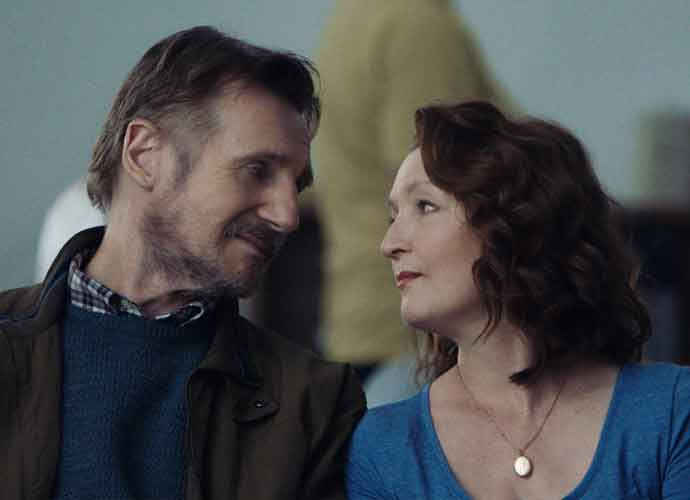

Liam Neeson and Lesley Manville in 'Ordinary Love'
Plenty of movies deal with the specter of cancer, but few take any pains to show the true effect it can have on those afflicted. Ordinary Love gets its diagnosis out of the way early, leaving the majority of the film’s runtime as a space to explore the devastation that the disease can have on people.
Liam Neeson and Lesley Manville star as Tom and Joan, an older couple living in Northern Ireland who are living an otherwise normal life when a lump in Joan’s breast turns out to be a tumor. The chemistry between the two leads is apparent from the film’s opening shot, and the push-and-pull dynamism between Neeson and Manville feels as real as any of their previous work.
In many ways, Ordinary Love does for cancer what the equally great Marriage Story did for divorce: reigning in the theatrics and delivering a sober, even-handed look at how it can affect the daily lives of otherwise “normal” people. The film treats cancer exactly like what it is: a devastating menace to people that, because of its presence in the lives of so many, is treated with much more remove than most other tragedies are. Whereas many movies of Ordinary Love‘s emotional caliber feature gut-wrenching scenes of violence or conflict, many of this film’s most powerful moments take place in the clean, calm offices of doctors.
Despite the film’s title, Tom and Joan are still not a fully “ordinary” couple — years earlier, their daughter died suddenly and unexpectedly. While the audience is never fully privy to what happened, several moments in the film imply that the emotional fallout this caused between the two was never entirely addressed or mended. Ordinary Love, with exceptional tenderness, shows how a cancer diagnosis can cause the re-emergence of deeply buried emotions and issues; watching Tom and Joan wrestle with those issues both internally and externally provides almost all of the film’s best and most difficult moments.
David Wilmot plays Peter a former teacher of Tom and Joan’s daughter also undergoing his own struggles with cancer, but his entire subplot mostly just serves as an opportunity for Joan to sound off on her struggles to someone other than Tom. While Wilmot delivers a great performance as Peter, his inclusion is just too intrusive to be ignorable but not important enough to be fully memorable either. Amit Shah gives a by-the-numbers performance as Steve, Peter’s partner, who is having difficulty with Peter’s diagnosis. While the two characters are well-conceived, they’re a bit too underwritten to be little more than figures of contrast for Joan’s journey.
While the film has a few brief, ill-advised forays into the expressionistic, directors Lisa Barros D’Sa and Glenn Leyburn doing a great job of keeping playwright Owen McCafferty‘s script fully grounded in reality, rarely allowing any moments to stray too far into the theatrical. Tom and Joan, even with their ever-charming rapport, feel real enough that even the slightest moments of discord between them resonate. This realness, while paving the way for much of the film’s heartbreak, also makes the love at the center of the story that much more meaningful — ordinary, perhaps, but beautiful nonetheless.
https://www.youtube.com/shorts/-cFRd-gnkog Billionaire Elon Musk was spotted entertaining his table during a dinner at the Trump…
In July 2024, Dunham told The New Yorker, “I was not willing to have another…
Important to note, Wilson is the daughter of Beach Boys founder Brian Wilson.
Reflecting on his favorite off-screen memory, Kane looked to Bellman. “It’s just working with you."
Days before the cry for help, Glanville had tweeted the update, "My face is worse…
The use of the federal death penalty was one of the first major changes the…